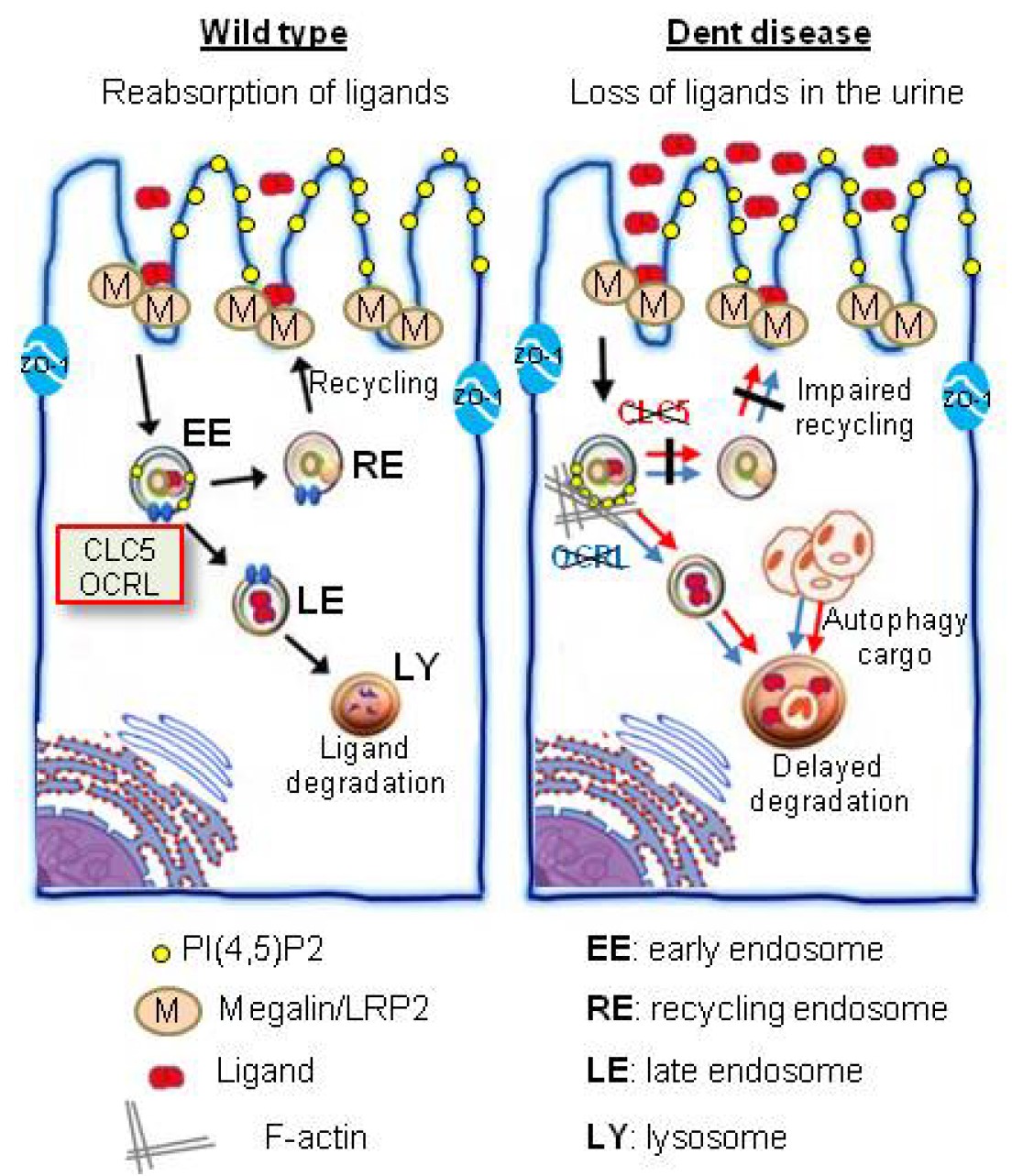LoF mutations - Dent and Lowe syndrome
These two X-linked diseases affect the endolysosomal compartment sustaining the re-absorptive capacity of cells lining the proximal tubule (PT) of the kidney. They are characterized by massive losses of solutes in urine (“renal Fanconi syndrome”) leading to life-threatening metabolic complications, kidney stones and chronic kidney disease (CKD). Treatment is supportive and does not correct PT cell dysfunction nor prevent the deterioration of kidney function. Inactivating mutations in CLCN5 that encodes the endosomal chloride-proton exchanger ClC-5 (Dent 1) or in OCRL (Dent 2 and Lowe syndrome) that encodes the inositol polyphosphate 5-phosphatase OCRL cause Dent disease. Located at different stations of the endosomal-lysosomal pathway, OCRL controls the cellular metabolism of phosphatidylinositol (PI)4, 5-bisphosphate (PI(4,5)P2), an essential regulator of membrane trafficking. Using mouse models and cellular systems, Prof. Devuyst evidenced critical defects in trafficking of apical receptors and endolysosomal pathway as the molecular basis of these diseases. Our aim is to find new targets to rescue epithelial function and prevent complications of Dent disease, by: (i) Testing lead compounds, identified by high content screening (HCS), on mouse, fish and cell models, followed by multi-omics analyses to identify the molecular pathways modulated; (ii) Using a computational modeling approach to design customized chemical libraries and test them by high-throughput screening for modulators of early PT dysfunction in Dent disease; (iii) Preventing kidney stone formation and progression to CKD in Dent disease; (iv) Testing the potential benefit of modulating PI homeostasis and hematopoietic stem cell transplantation.

Figure 1. Mutations in chloride transporter ClC-5 and phosphatidylinositol PI(4,5)P2 5-phosphatase OCRL impair receptor-mediated endocytosis and the endo-lysosomal network of kidney tubular cells in Dent disease, leading to massive loss of ligands in the urine and progressive kidney failure.